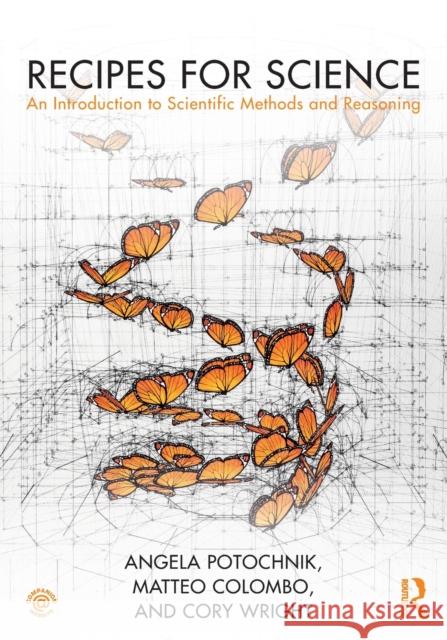Recipes for Science: An Introduction to Scientific Methods and Reasoning » książka
Recipes for Science: An Introduction to Scientific Methods and Reasoning
ISBN-13: 9781138920736 / Angielski / Miękka / 2018 / 336 str.
Recipes for Science: An Introduction to Scientific Methods and Reasoning
ISBN-13: 9781138920736 / Angielski / Miękka / 2018 / 336 str.
(netto: 229,19 VAT: 5%)
Najniższa cena z 30 dni: 221,59 zł
ok. 30 dni roboczych.
Darmowa dostawa!
There is widespread recognition at universities that a proper understanding of science is needed for all undergraduates. Good jobs are increasingly found in fields related to Science, Technology, Engineering, and Medicine (STEM), and science now enters almost all aspects of our daily lives. For these reasons, scientific literacy and an understanding of scientific methodology are now a foundational part of any undergraduate education (and not just the education of science majors). Recipes for Science provides an accessible introduction to the main concepts and methods of scientific reasoning. With the help of an array of contemporary and historical examples, definitions, visual aids, and exercises for active learning, the textbook helps to increase students' scientific literacy. The first part of the book covers the definitive features of science: naturalism, experimentation, modeling, and the merits and shortcomings of experimenting and modeling. The second part covers the main forms of inference in science: deductive, inductive, abductive, probabilistic, statistical, and causal. The book concludes with a discussion of explanation, theorizing and theory-change, and the relationship between science and society. The textbook is designed to be adaptable to a wide variety of different kinds of courses. In any of these different uses, the book helps students better navigate our scientific, 21st-century world, and it lays the foundation for more advanced undergraduate coursework in a wide variety of liberal arts and science courses.
Key Features
- Helps students develop scientific literacy--an essential aspect of any undergraduate education in the 21st century, including a broad understanding of scientific reasoning, methods, and concepts
- Is written for all beginning college students: preparing science majors for more focused work in particular science; introducing the humanities' investigations of science; and helping non-science majors become more sophisticated consumers of scientific information
- Provides an abundance of both contemporary and historical examples
- Covers reasoning strategies and norms applicable in all fields of physical, life, and social sciences, as well as strategies and norms distinctive of specific sciences
- Includes visual aids to clarify and illustrate ideas
- Provides text boxes with related topics and helpful definitions of key terms, and includes a final Glossary with all key terms
- Includes Exercises for Active Learning at the end of each chapter, which will ensure full student engagement and mastery of the information include earlier in the chapter
- Provides annotated "For Further Reading" sections at the end of each chapter, guiding students to the best primary and secondary sources available
- Offers a Companion Website, with:
- For Students: direct links to many of the primary sources discussed in the text, student self-check assessments, a bank of exam questions, and ideas for extended out-of-class projects
- For Instructors: a password-protected Teacher's Manual, which provides student exam questions with answers, extensive lecture notes, classroom-ready Power Point presentations, and sample syllabi
- Extensive Curricular Development materials, helping any instructor who needs to create a Scientific Reasoning Course, ex nihilo











